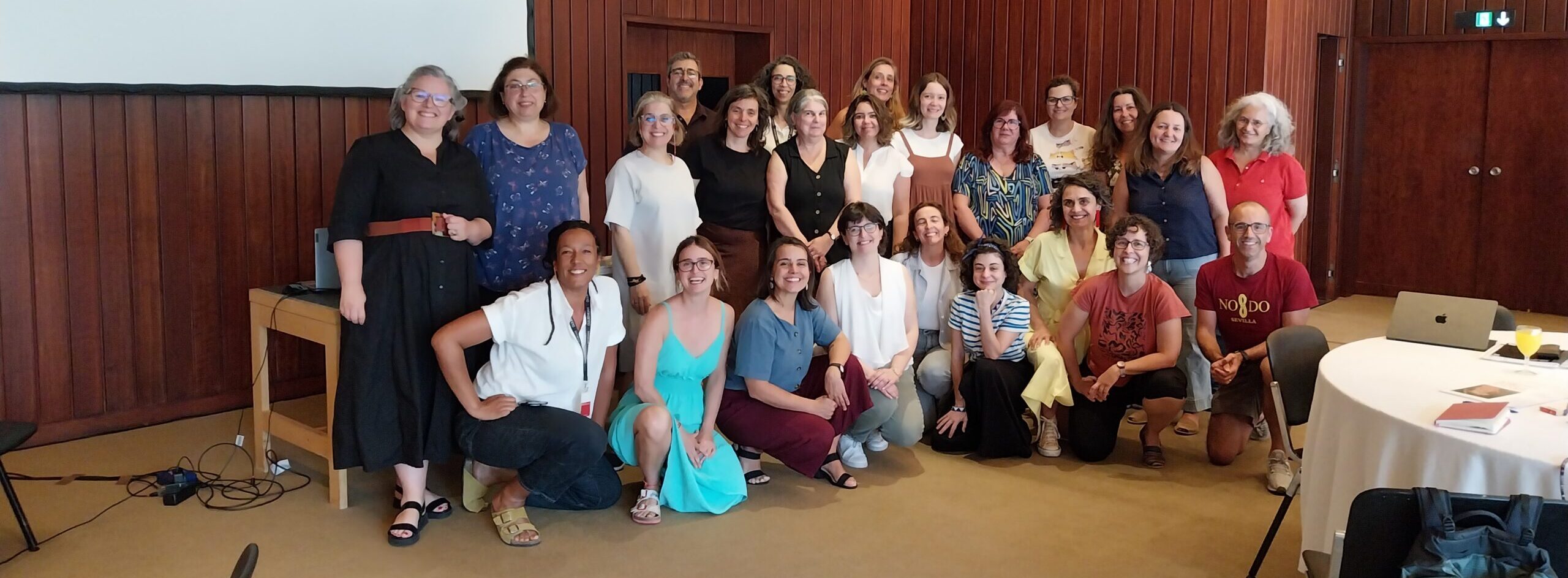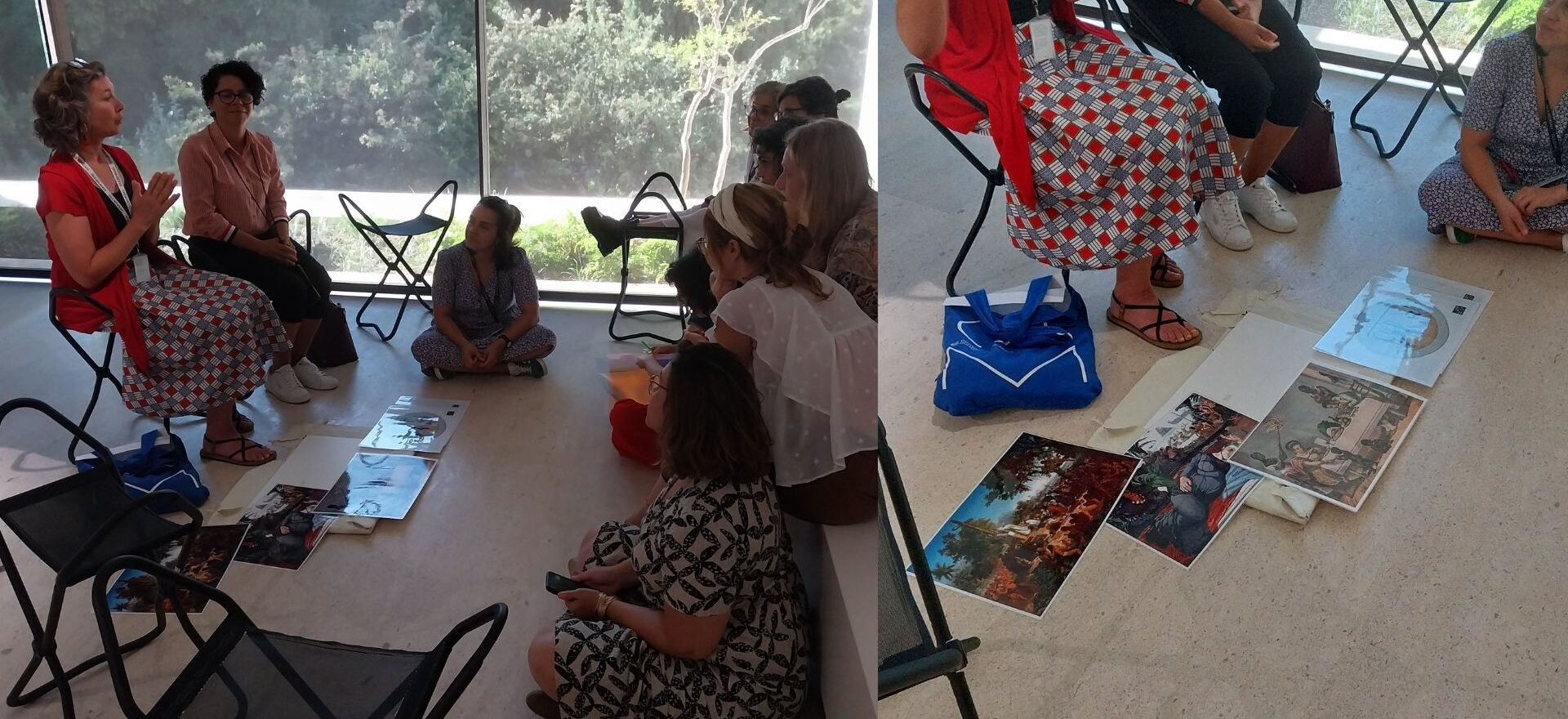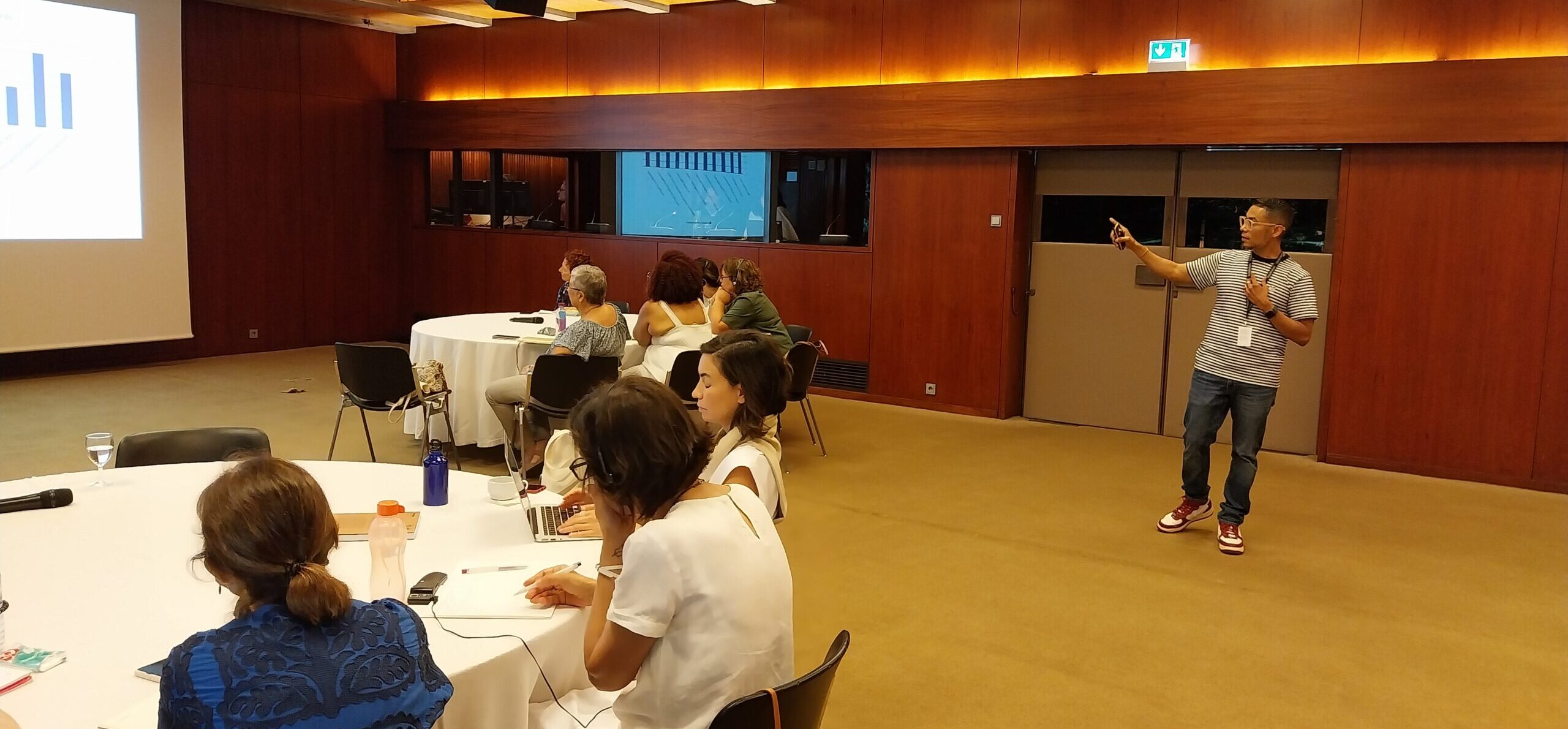Difficult Histories, Difficult Legacies: Teaching Slavery and Public Memory
By Raquel Rodrigues Machaqueiro | August 29, 2025

Participants and Presenters at Difficult Histories Difficult Legacies, 2025.
History Erased
Portugal played a vital role in the history of the transatlantic slave trade. The Portuguese are responsible for almost half of the 12.6 million Africans who were enslaved and brought to the Americas. However, this history is consistently neglected and erased from public memory and heritage, and replaced with a celebratory narrative of maritime discoveries. Because of this false narrative, Portugal’s national school curricula barely mention the country’s involvement in the transatlantic slave trade. When schools or cultural institutions discuss slavery, they depict Portugal as benign compared to other European colonial empires.

Susana Gomes da Silva leading a workshop at the Centro de Arte Moderna Gulbenkian in Lisbon, Raquel Machaqueiro.
Changing the Narrative
Against this backdrop, in July 2024, SWP launched a new initiative in Portugal. In collaboration with the Calouste Gulbenkian Foundation, “Difficult Histories, Difficult Legacies” is a workshop designed to provide teachers and museum educators with the pedagogical tools to discuss and teach about slavery. The inaugural training course was well-attended and fostered essential discussions about this complex history.
Throughout those two weeks, we realized educators not only wanted to learn this history themselves but were eager to obtain practical resources on approaching the topics inclusively and productively. Currently, many schools in the Lisbon area have students from various nationalities and ancestries. This creates a challenge for educators who want to engage with students’ levels of understanding of Portugal’s history of slavery.
Providing teachers with resources, pedagogical strategies, and tools that help engage students is a continuing goal of SWP.
Continuing to grow
Given the high demand, SWP and Gulbenkian developed the second edition of Difficult Histories, Difficult Legacies in 2025. We sought to provide teachers and educators with comparative approaches to education. International Scholars, Orlando Serrano (United States), and Lucimar Felisberto dos Santos (Brazil) shared their strategies for teaching in different national contexts.
Each week, the training ended with a public conference, where invited scholars discussed issues related to the history of slavery. The first week hosted Orlando Serrano and Lucimar Felisberto dos Santos, who discussed affirmative action policies in the US and Brazil. The second week saw Marta Araújo and Aurora Almada e Santos in a conversation on teaching the history of slavery in Portugal.
The second edition also saw participation of Raquel Machaqueiro (SWP/GWU – who also coordinated the training), Marta Araújo (Coimbra University), Aurora Almada e Santos (Nova University of Lisbon), Cristina Roldão (Setúbal Education School), Inês Brandão (Gulbenkian Museum), and Susana Gomes da Silva (CAM-Gulbenkian).
SWP and its partners will continue working on this important initiative. Stay tuned for 2026!

Orlando Serrano presenting, Raquel Machaqueiro
